Mangosuthu Buthelezi, South Africa's Zulu Hawk, Dies Aged 95
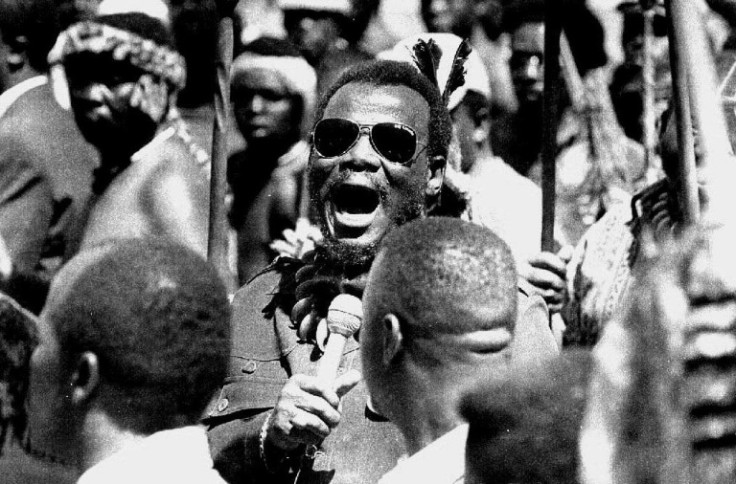
Mangosuthu Buthelezi, the once-feared Zulu nationalist and historic leader of Inkatha Freedom Party (IFP) which was implicated in South Africa's deadliest violence ahead of the first all-race elections, died Saturday aged 95, President Cyril Ramaphosa announced.
"I am deeply saddened to announce the passing of Prince Mangosuthu Buthelezi ... Traditional Prime Minister to the Zulu Monarch and Nation, and the Founder and President Emeritus of the Inkatha Freedom Party," Ramaphosa said in a statement.
"Buthelezi has been an outstanding leader in the political and cultural life of our nation, including the ebbs and flows of our liberation struggle, the transition which secured our freedom in 1994 and our democratic dispensation," Ramaphosa said.
Details of Buthelezi's funeral, which would traditionally happen on a weekend, have not been announced.
"He quietly and painlessly stepped into eternity in the early hours of the morning" Buthelezi's family said in a statement.
"It will be hard for me to sleep at night in the next coming days" the Zulu monarch, Misuzulu Zulu, said during a televised speech at the annual "reed dance" ceremony in KwaZulu-Natal province.
"As you all know we worked together a lot until the very end, we got along well, I respected him," the king said.
Buthelezi, last week was discharged from hospital after a prolonged stay.
Born of royal blood on August 27, 1928, Mangosuthu Gatsha Buthelezi was to some the embodiment of the Zulu spirit: proud and feisty. To others, he bordered on a warlord.
For years he was defined by his bitter rivalry with South Africa's ruling African National Congress (ANC), a party that was his political home until he broke away to form IFP in 1975.
He led the party from its inception, until the age of 90.
Sending a message of condolences, the ANC said in a statement that it "acknowledges" Buthelezi "had a multifaceted relationship with the ANC and the nation".
The current IFP leader, Velenkosini Hlabisa, said in a statement that "the IFP gives thanks -- even through our tears -- for the exceptional leader given to us for so many years. He blessed our country beyond measure. We cannot begin to express our gratitude."
South Africa's largest opposition party the Democratic Alliance said on X that South Africans had "have lost a founding father".
As premier of the "independent" homeland of KwaZulu, a political creation of the apartheid government, Buthelezi was often regarded as an ally of the racist regime.
He was dogged by allegations of collaborating with the old government to fuel violence to derail the ANC's liberation struggle -- a claim he furiously denied.
The country's second-largest opposition party, the Economic Freedom Fighters (EFF) said in a statement that "his legacy will remain a debate in the South African political terrain for years to come".
But the EFF commended him for managing "the realms of politics and the Zulu monarchy for decades".
President Hage Geingob of neighbouring Namibia said Buthelezi "played a prominent role on South African politics for almost a century", adding that he enjoyed "good relations with him".
In the 1980s, the rift between Buthelezi's party and the ANC intensified as he distanced himself from the movement and its anti-apartheid strategies, utterances denounced by the then-jailed Nelson Mandela as undermining the black leadership.
He also stirred the wrath of the liberation movements by calling for increased international investment in South Africa, opposing the call for sanctions to put pressure on the white government.
Violence between Inkatha supporters and rival liberation groups escalated in the mid-1980s. By 1990 more than 5,000 people had been killed in clashes.
In 1991, Mandela and Buthelezi held talks and called for an end to the bloodshed.
But a year later, reports resurfaced of IFP-fomented violence, backed by apartheid security forces in Johannesburg and in the eastern Natal region.
There was a new surge of unrest between ANC and IFP supporters in the run up to the first democratic elections in 1994, that claimed about 12,000 lives.
The violence largely dissipated after 1994, with Buthelezi appointed home affairs minister. He went on to become one of the longest-serving lawmakers.
Debilitated and barely able to walk, the once-feared leader stood hunched and small, a shadow of his former self, peering at the crowd over his glasses, as he attended the Zulu annual reed dance in September 2022.
Former president Thabo Mbeki said in a statement that the Zulu grande "left an indelible mark" in shaping the country's political landscape.
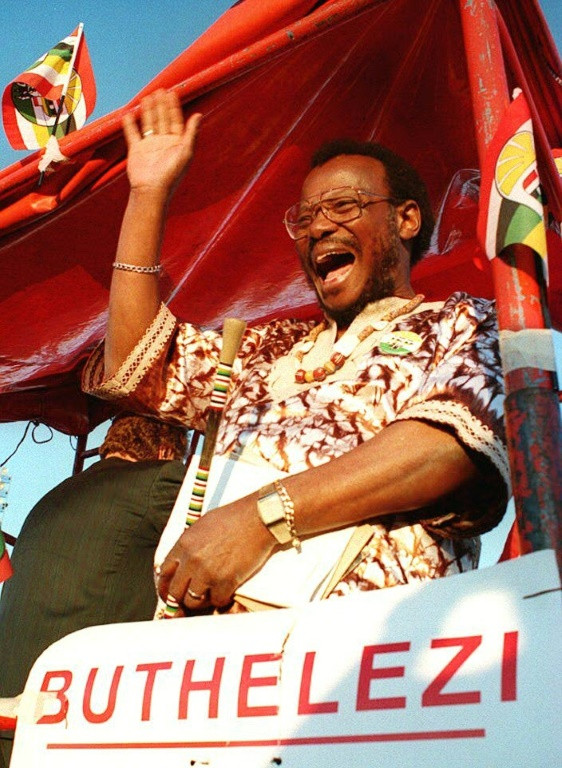
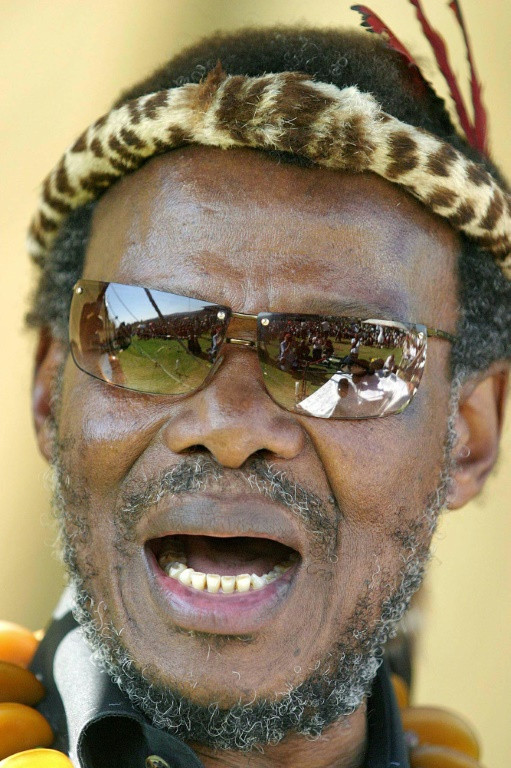
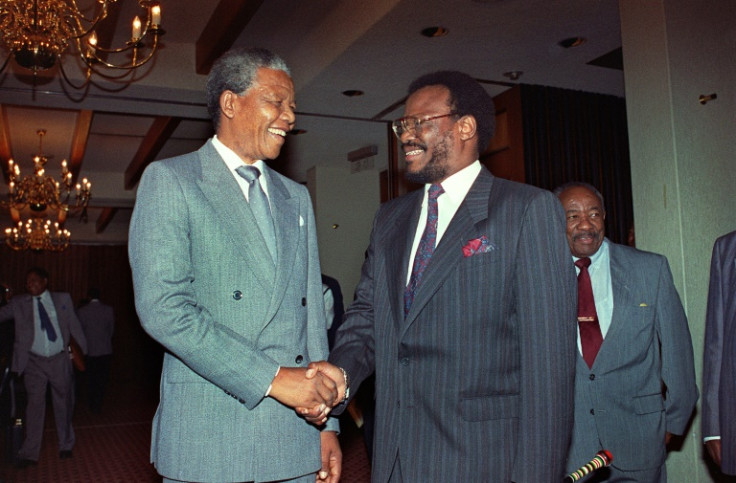
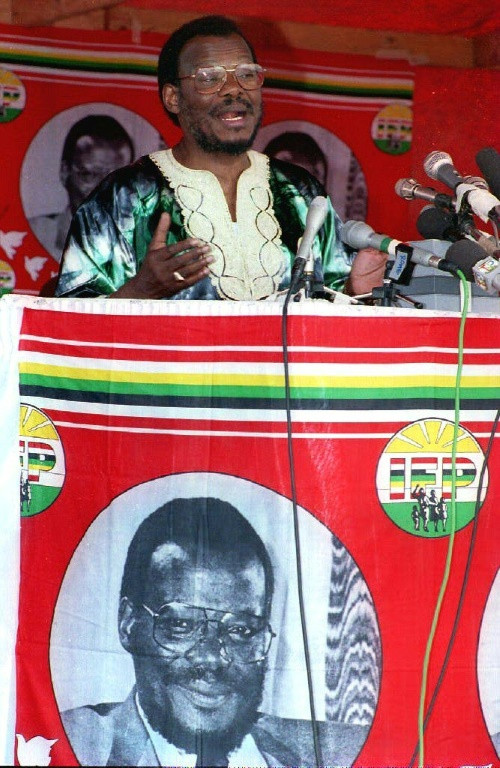
© Copyright AFP 2025. All rights reserved.





















